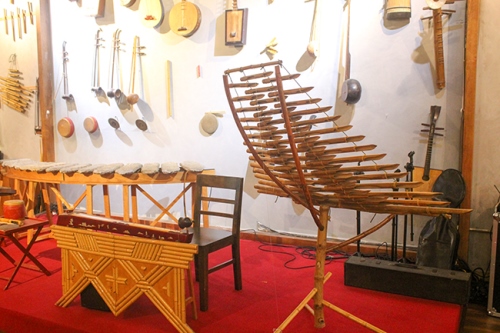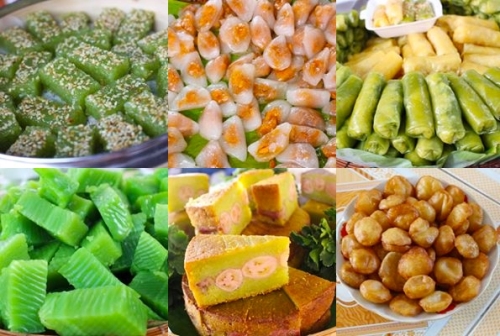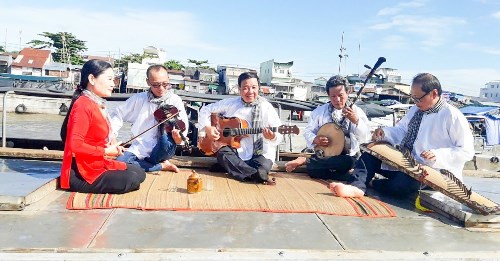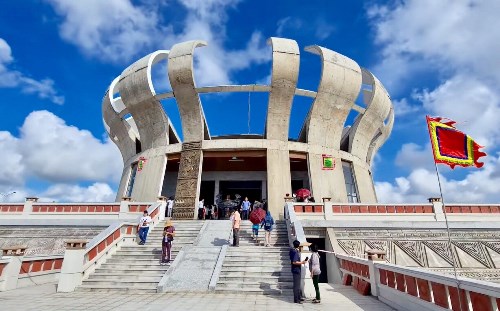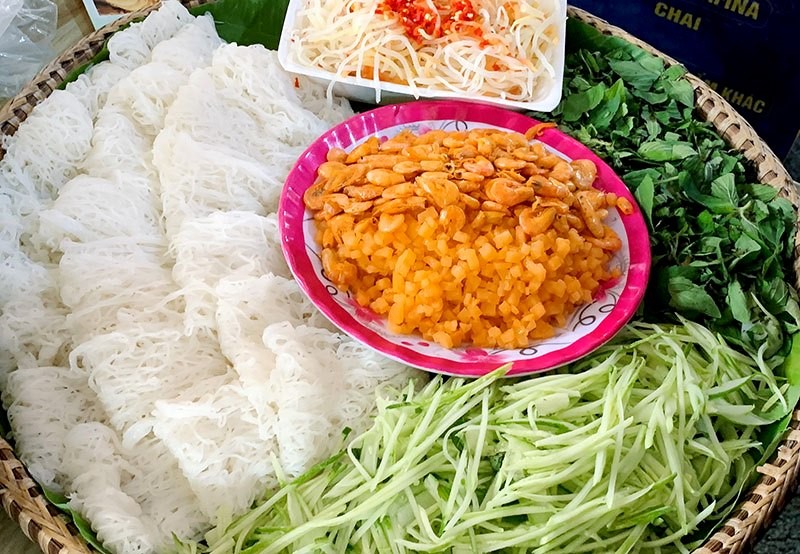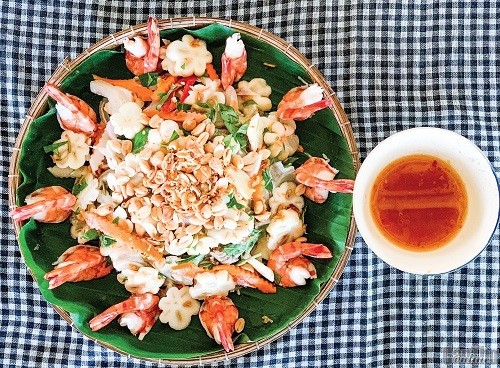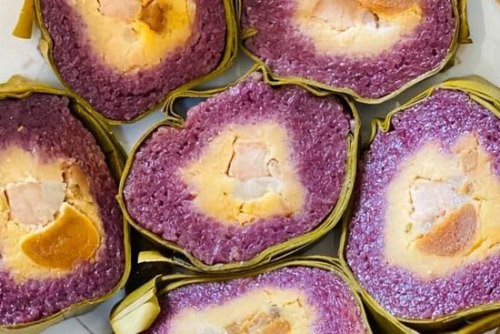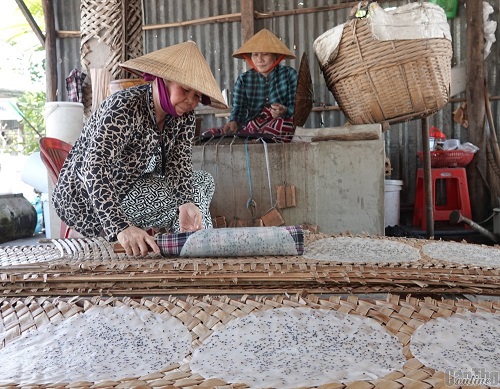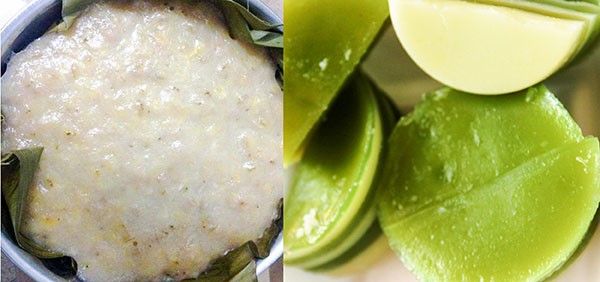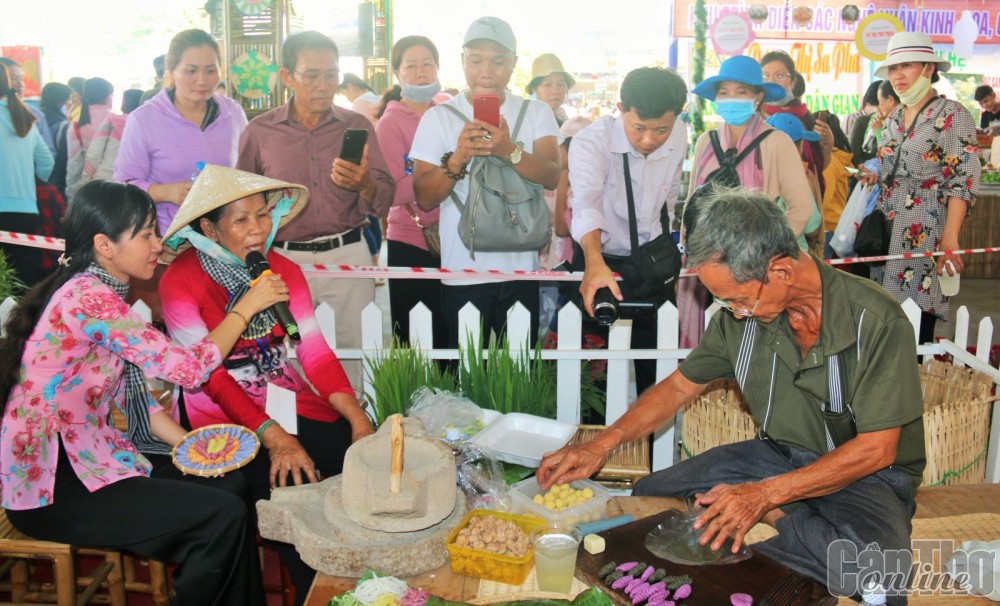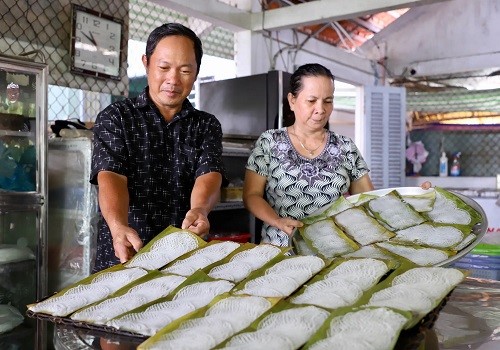
Potentials for economic development
We visited the Ut Dzach Fine Rice Vermicelli facility while Mr. Canh and his wife were busy making hammock-shaped fine rice vermicelli. Outside, tourists picked and enjoyed ripe fruit in his garden.
Recalling the first time he started his business model in December 2014, Mr. Canh said: “I tried, I failed, and I learned. I attract tourists with my homegrown fruit trees and my family's traditional business of making hammock-shaped fine rice vermicelli. During the peak season, my facility welcomes an average of 20-30 visitors every day.
Previously, Mr. Canh's annual income from growing Ha Chau Burmese grapes, langsat, mangosteen, etc. was approximately 200 million VND. However, after applying a new business model, his income has significantly increased. Now, he is able to cover his family's living expenses and education.
Giao Duong eco-tourism garden (Nhon Loc 1 hamlet, Phong Dien town) attracts many tourists. 37 years ago, Giao Duong eco-tourism garden was the first tourist destination in Phong Dien district, built by Mr. Nguyen Thua Duong (Giao Duong). Mr. Nguyen Tan Quang, the son of Mr. Giao Duong, continues to develop and expand the family's business by building accommodation rooms and organizing experiential activities for tourists. During the peak season in summer, Giao Duong eco-tourism garden welcomes around 300-400 visitors every day, providing the family with a stable income of over 30 million VND per month.
In Phong Dien district, a growing number of households have shifted from growing fruit trees to serving tourists, with about 52 eco-tourism sites currently in operation. These sites are run by farmers who are skilled in both production and business. There are two great examples of successful tourist orchards. One is Mr. Vo Hoai Thanh's orchard in My Hoa hamlet, My Khanh commune. It has a 0.6-hectare area of orange and grapefruit gardens, 3 homestay rooms, and 8 thatch-roofed huts that serve food. On average, it welcomes 40-50 guests per day. The other example is the household of Mr. Lam The Cuong in My Nhon hamlet, My Khanh commune. They have a business model of growing and processing cocoa combined with ecotourism, which brings them an income of over 300 million VND per year.
Aiming for professionalism
Ms. Tran Thi Thien Thu, Vice President of Can Tho Farmers' Association, stated that in recent years, agricultural tourism has gained popularity in the region. This type of tourism has been promoted through various models and products, such as community tourism, farm production combined with tourism, farmers participating in maintaining trading on traditional floating markets, and growing ornamental flowers combined with tourism. These models and products offer tourists an interesting experience.
Many farmers have found success by applying agritourism models to their tourist gardens. As a result, this generates a 30% or higher increase in income compared to simple production. One such example is located in Con Son, Binh Thuy district. The garden farmers have capitalized on the agricultural strengths of existing vegetable gardens and fish ponds to develop innovative tourism ideas and products, such as flying snakehead fish, frog circus, and Southern folk cake-making. An excellent example of agricultural tourism is Mr. Ly Van Bon and his fish cage farming model, which is integrated with tourism. Apart from catering to tourists, Mr. Bon has also invested in a factory that produces boneless fish cakes and salted fish slices with lemongrass, which he sells to tourists. By successfully merging the two models, he has a steady source of income of around 9-10 billion VND every year and has created regular employment for almost 40 local workers.
Ms. Tran Thi Thien Thu notes that while Can Tho City has great potential for agricultural tourism, the current models are fragmented and unprofessional. Can Tho City Farmers' Association has been organizing training courses for farmers at all levels to provide practical experiences in model development, business administration, and development cooperation. They also closely coordinate with the Bank for Social Policies to connect households developing agricultural tourism models with preferential credit programs. This helps to increase profits for farmers and promote typical local products to tourists from near and far.
Source: Can Tho News - Translated by Hoang Dat





